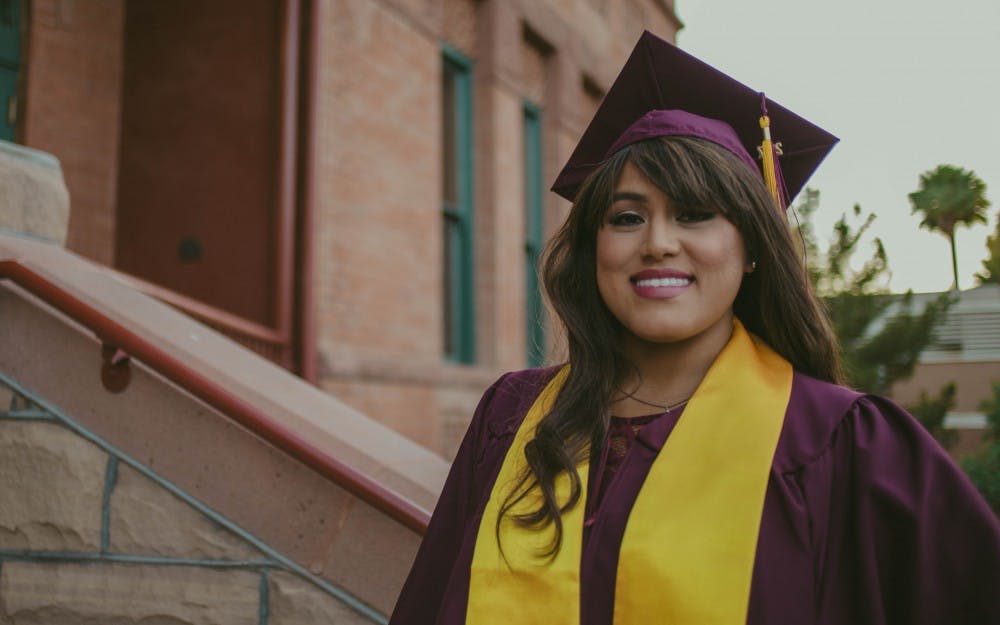After the Arizona Supreme Court's April decision denying in-state tuition to Deferred Action for Childhood Arrivals recipients, DACA students have seen their options for higher education further limited.
The Court's ruling sided with Arizona Attorney General Mark Brnovich in a lawsuit that claimed in-state tuition was a state benefit, thus increasing tuition for DACA recipients by 200 percent.
In addition, DACA recipients are not eligible for Pell Grants or federal student loans.
Ellie Perez, who graduated from ASU in 2017 with a degree in justice studies, said the Court's ruling halted her dream of being a lawyer because the tuition increase prevented her from attending the Sandra Day O'Connor College of Law.
"Now (that) I can't go to school, it's going to be ten times harder to continue my education," Perez said. "It’s disheartening, but it also adds a bit more fuel to the fire."
Perez said the Court's decision to deny in-state tuition to DACA recipients is unfair to students who see Arizona as their only home.
"I've been in Arizona since I was three years old," she said. "To have someone tell me 'This isn't your home' because of some arbitrary law that decides who gets in-state tuition, it's really disheartening."
Belen Sisa, a 2018 ASU graduate, DACA recipient and activist, co-founded the Undocumented Students for Education Equity student club to publicize and address the plights of DACA recipients.
Previous to the decision, DACA students were only required to pay the in-state tuition fee of about $5,000 per semester and are now required to pay the out-of-state fee of about $14,000 per semester.
One way that DACA students can receive assistance is through private scholarships, but Sisa said funds from these scholarships are limited and strained.
One such scholarship is sponsored by The Dream.US, a private scholarship organization, which is partnered with ASU and 74 other colleges and universities. Its aim is to help DACA recipients attend college and graduate, according to their website.
Herminia Rincon, an ASU media relations officer, said in an emailed statement that the Arizona Board of Regents offers a special tuition rate for non-residents who have lived in Arizona for three years and have graduated from an Arizona high school.
Rincon also said the ASU Foundation, the University's non-profit fundraising arm, offers scholarships for DACA recipients, and that scholarships are available through "generous private donations."
The future of DACA is in the midst of a long-term political struggle.
Denis Alvarez, a sophomore studying secondary education, said that she felt scared when the ruling came out in April.
"ASU wasn't answering any questions at first," Alvarez said. "That left me in a panic."
Alvarez was able to access another scholarship called the Dream Fund set up for dreamers through private funding. She also received the special tuition rate and a scholarship from The Dream.US.
However, Alvarez said she is still worried that she may be denied her dream of graduating college because "there is still a possibility someone else could sue, and another judge could take DACA away."
Another fear Alvarez has is her family being exposed. "My biggest worry is that someone might track me down through social media and do something that will affect my parents," she said, fearing that they may be deported.
Alvarez said she has been in Arizona since she was four years old and she intends to stay.
"My goal is to be here," Alvarez said. "I want to give back to my community. I want to be part of the positive change we make here."
Clarification: This article has been updated to more accurately describe the ASU Foundation.
Reach the reporter at jpdreyfu@asu.edu or follow @JohnDPhx on Twitter.
Like State Press on Facebook and follow @statepress on Twitter.




